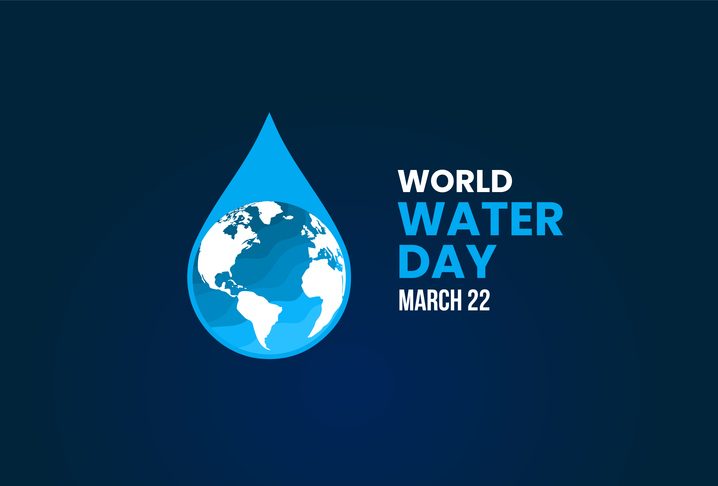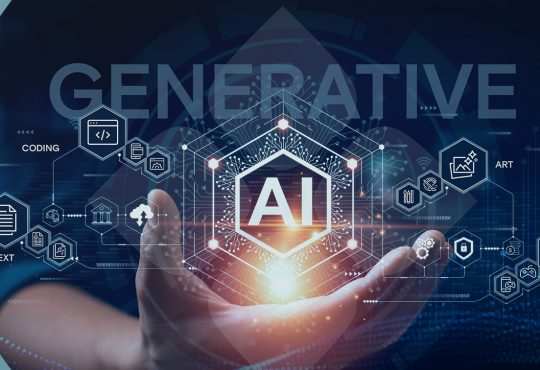
“Water conservation is the need of the hour, and the warehousing industry holds immense potential in reducing water consumption through various innovative measures. Implementing water-efficient technologies such as rainwater harvesting, sewage treatment plants and recycled water usage in warehousing facilities can significantly cut down on water usage. Optimizing logistics and supply chain management can also lead to reduced water wastage during transportation and storage of goods. Additionally, promoting employee awareness and training on water conservation practices within warehouses can further contribute to sustainable water management. By integrating these strategies, the warehousing and logistics industry can play a crucial role in conserving water resources and building an environmentally responsible future.”- Abhijit Verma, Founder & MD, Avinya Industrial and Logistic Parks
“The World Water Day and the situation in Bengaluru serve as a sobering reminder of how important, yet undervalued, a resource water is. We all knew the impact of climate change would be felt through water crises; however, now more than ever, we are living that reality. I recall the well in my childhood home – how valued an asset it was in our household. As I grew up, the well dried up, and makeshift tanks provided temporary relief. Today, though, the sight of tanker trucks delivering water is as common as seeing food delivery boys around the city. As a perpetual optimist, I dream of a future where water is a treasured asset, and the term “shortage” becomes completely unassociated with water. At FluxGen, we feel privileged to work on making this a possibility. We have begun this mission by working with industries and smart cities to help them optimize their water consumption. However, we see the sky as the limit. We want to do all it takes to build a water-positive future.” – Ganesh Shankar, Founder & CEO, Fluxgen Sustainable Technologies
“Increasing population and rapid urbanization have caused great stress on our water bodies, and thereby water availability. At Infosys, early on, we have implemented several measures to drive water conservation across our campuses in India. These include low-flow fixtures for demand reduction, smart water metering to identify and arrest leakages, sewage treatment plants to treat and reuse 100% of the wastewater, and rainwater harvesting to collect and use rainwater effectively. Freshwater consumption in our offices has reduced to less than 15 liters per person per day.
39 lakes across our campuses in India, including many in Bengaluru and Mysuru, help in collecting rainwater and improving the ground water table. A holistic and long-term approach to water management – reducing demand, effective treatment & reuse, and rainwater management – is required not only in times of crisis but as standard practice.” – Guruprakash Sastry, AVP & Regional Head – Infrastructure, Infosys on the company’s water conservation efforts across its Bengaluru and Mysuru campuses.
“At Virtusa, a leading IT solution provider, we are committed in harnessing technology to protect our environment and build a sustainable future. Our goal is to make a positive impact on both humanity and the environment. As we mark this World Water Day, let’s focus on the theme of ‘Leveraging Water for Peace.’ Together, we pledge to leveraging technology to address water-related challenges, foster peace, and ensure universal access to clean water. Let’s acknowledge water’s pivotal role in bringing harmony, empowering communities, and driving progress for all.” Amit Bajoria, Chief Financial Officer, Virtusa.
“As the impacts of climate change intensify and the population continues to grow, it becomes increasingly urgent for us to come together to conserve our invaluable water resources. Collaboration on water management creates a ripple effect of positive outcomes, promoting harmony, fostering prosperity, and enhancing resilience. The Indian government is actively taking initiatives such as the Jal Jeevan Mission, Jal Shakti Abhiyan: Catch the Rain Campaign, etc. to preserve the country’s water resources and address the mounting water challenges. GIS technology is at the heart of such government initiatives, playing a vital role in their success. We are closely working with State Water Resource Departments and leading water resource management agencies across the country such as NWIC, NMCG, Thrissur Municipality, Orange City Water (Nagpur), etc., to gain a better understanding of the multidimensional complexities of water ecology, socio-economic challenges of our communities, water quality and other important parameters, and define a long-term view for a sustainable water future.” – Agendra Kumar, Managing Director, Esri India
“Some of the simple technologies to reduce water wastage at home are: Water-Efficient Appliances- like washing machines and dishwashers, Low-flow Faucets and Shower-heads, they keep the pressure but use less water, Water-Saving Aerators- these can be fit on existing taps to reduce water, High-Efficiency Toilets (or at least have tank-inserts, that reduce the amount of water flushed), mopping machines, Smart Water Meters-these meters provide real-time data that help improve water use, Smart Leak Detection Systems- they alerts homeowners about leaks, Xeriscaping- using drought resistant plants and mulch to reduce garden water requirements, Drip Irrigation Kits- efficiently deliver water to plants, minimising wastage.
Realise the reality of water scarcity and do whatever is possible to conserve water. While continuing to pressure the local government for improved facilities, reduce dependence on government – depend on one’s own capabilities and the local community. Make sure to have adequate provisions for water storage, and build rainwater harvesting tanks, grey-water recycling systems, and permeable pavements that help groundwater recharge. Do these conservation activities individually or collectively at the community or RWA level.
The largest consumer of water is farming, with approximately 70% of water going to the sector, which is not only subsidised but often very unregulated and inefficient. What can an ordinary person do? Increase the diet of pulses, potatoes, and root vegetables with a lower water production requirement. Market demand will drive farmers’ increased production in that direction. India has a massive rice surplus, with around 62 million tonnes, and some studies estimate that a minimum of 2500 litres of water is required to produce 1 kg of rice” – Dr Ajith Chandran,Chair – IET Water Working Group






